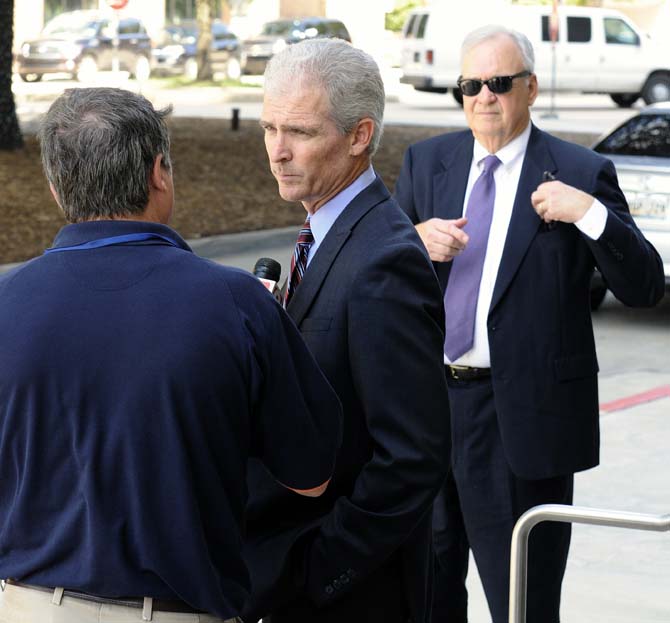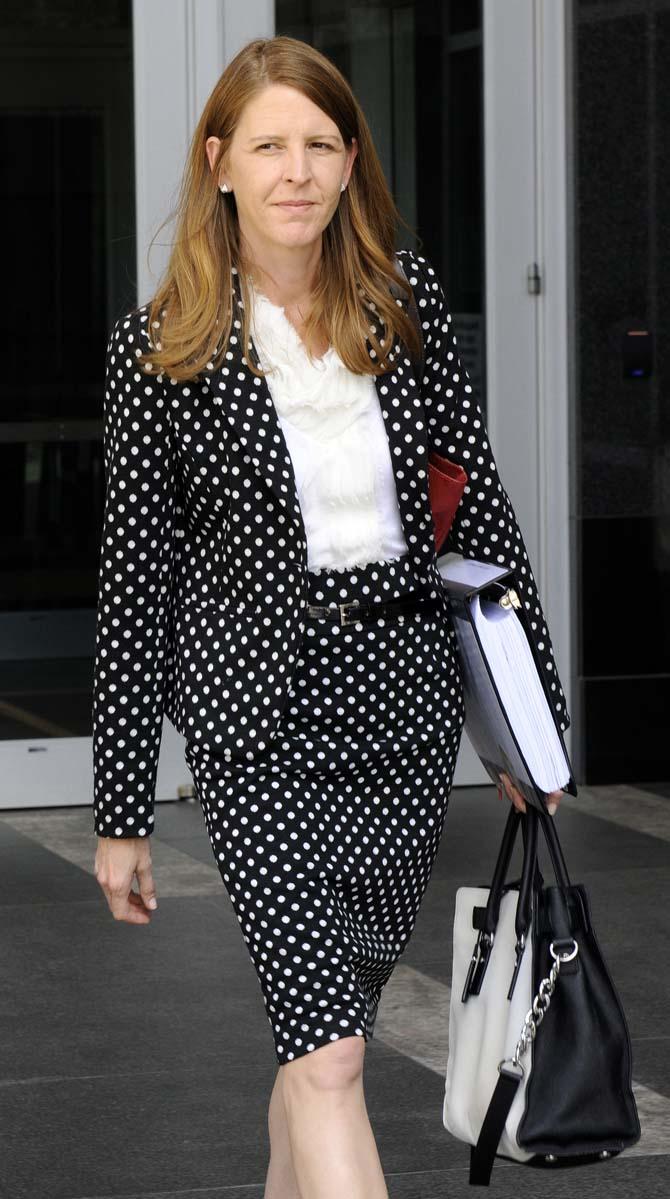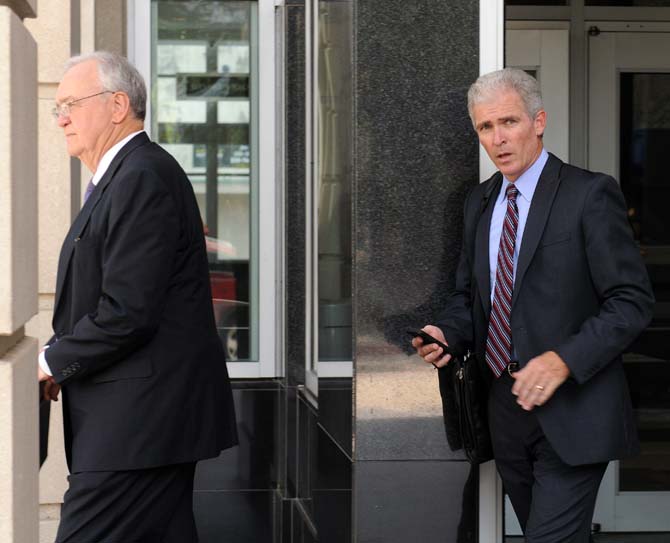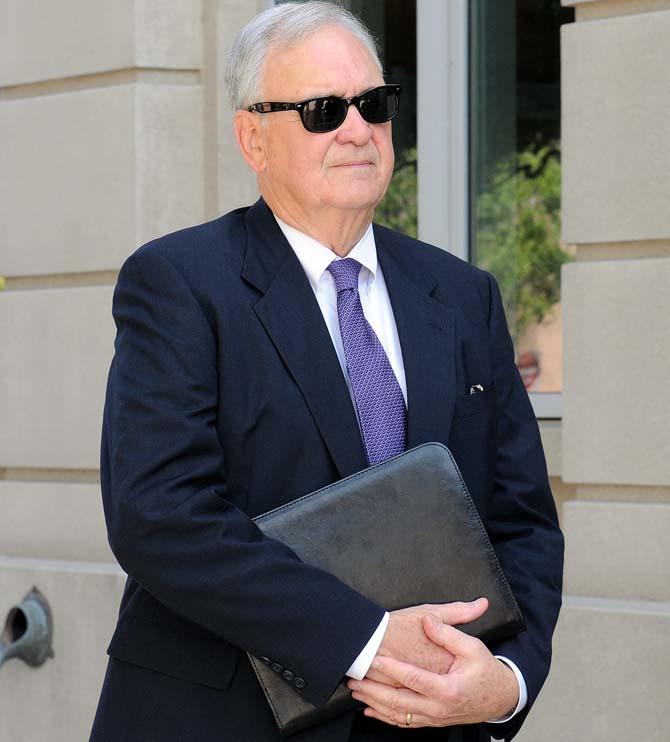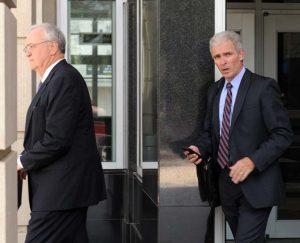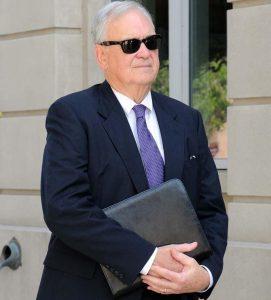The Board of Supervisors will turn over records of finalists for LSU’s presidential search to District Judge Janice Clark, according to University attorney Jimmy Faircloth.
Though he arrived half an hour late for the proceedings, Faircloth and Loretta Mince, attorney for NOLA.com | The Times-Picayune and The Advocate, were able to strike an agreement, stating Faircloth would deliver the documents under the condition that Clark not release them to the public while LSU awaits its appeal.
NOLA.com | The Times-Picayune and The Advocate sued the University Board of Supervisors in March after only one name — F. King Alexander — was put forward as a finalist for the System president position from a field of about 35 applicants. Clark ruled in the newspapers’ favor April 30.
Faircloth said he would retrieve the documents digitally from R. William Funk and Associates, the private firm that assisted in the presidential search, and deliver hard copies to the court.
When the documents are in the court’s possession, Clark said she will set a date for a final trial where attorney fees and penalties may be billed to the University. Mince said because Clark ruled against the University, it will be liable for any attorney fees NOLA.com | The Times-Picayune and The Advocate have accumulated.
Faircloth said the court date is at the judge’s discretion but will likely be scheduled for next week or the week after.
The University may also be further penalized by the court, Mince said. She said if Clark decides the University unreasonably failed to respond to her original ruling, it may be liable for further monetary penalties.
Louisiana public records law provides for $100 per day penalties from the day the original ruling was made. Clark may choose to impose penalties on the University because of how long it has taken to hand in the documents, Mince said.
After the final ruling, the University will be able to appeal the ruling to the Court of Appeals.
The University previously attempted to appeal the decision in August, but the appellate court declined to hear the case until Clark handed down a final decision. Mince and Faircloth both said it is likely the University will appeal again once Clark makes a final decision.
Faircloth said if the case was taken to the Court of Appeals, it would likely take another 60 to 90 days for that court to make a decision. He said public records cases are usually given priority in higher courts.
Mince said though she would be able to examine the documents to ensure they are correct, she will not disclose their contents to her clients. The documents will only become available to the press and the public after the case is heard in the First District Court of Appeals, she said.
“We certainly would have preferred the documents without restrictions,” Mince said.
Mince said although it’s possible the case will be taken to the state Supreme Court from the Court of Appeals, predicting whether that will happen is difficult. If the case is brought before the Supreme Court, Mince said it will likely be given a high priority on the docket.
“I’ve never heard of a public records case that went to the Supreme Court that didn’t get dealt with quickly,” Mince said.
University will hand over names to judge
September 16, 2013
LSU System’s Attorney Jimmy Faircloth gets interviewed after a new hearing in The Times-Picayune and The Advocate vs. LSU lawsuit Monday Sept. 16, 2013, at the 19th Judicial District Courhouse, Baton Rouge, La.


